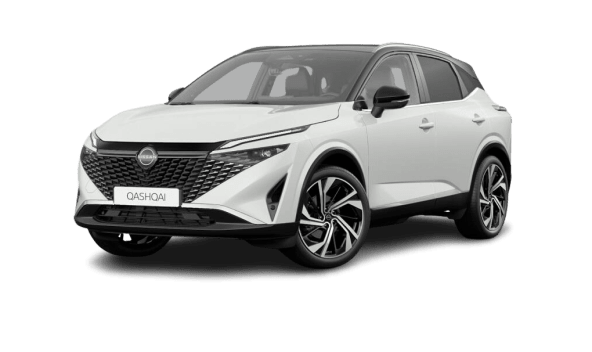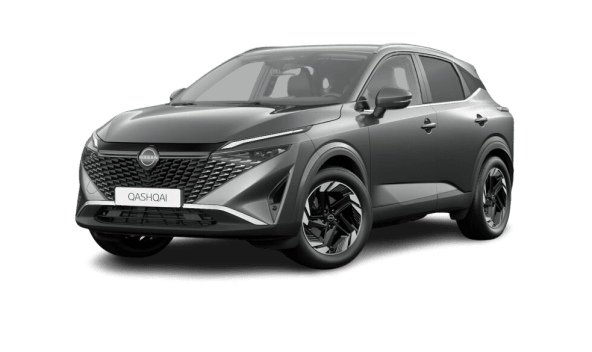Are Nissans Reliable Cars?
Are Nissans reliable cars? Learn more about Nissan's reliability, including what models you should avoid to reduce your maintenance costs.
Read time
10 minutes
Date
11.08.2023
Share
Founded in 1933, Nissan came to American shores and began selling cars in the 1960s. First known as Datsun, Nissan soon made a name for itself and continues to rank high among the most successful Japanese automakers in the country. Nissan’s luxury counterpart is the brand Infiniti, which offers similar models to those found in the Nissan lineup with an eye toward style, creature comforts, and refinement.
Many people wonder if Nissans are reliable cars. Nissans are generally as reliable as the next brand, though some models last longer. The reliability of an individual Nissan depends on several factors, including how well you take care of your vehicle. Understanding these factors can help you determine which Nissan model is right for you.
Find your Nissan
What makes a car reliable?
Reliability can be challenging to define, especially for something mechanical like cars. A car’s reliability score depends on several factors, including the following:
- Dependability
- Cost of ownership
- Low maintenance costs
- Depreciation
- Fuel efficiency
- Safety features
Some of these factors are quantifiable, while others are more qualitative. For example, fuel efficiency ratings and safety features can demonstrate a vehicle’s reliability. However, depreciation depends heavily upon the car market, from seasonal trends to inventory shortages.
Several reputable resources provide information on these reliability factors:
- J.D. Power’s Dependability Ratings
- Kelley Blue Book’s 5-Year Cost to Own
- RepairPal’s Car Reliability Ratings
- FuelEconomy.gov’s Fuel Efficiency Ratings
- Safety ratings from The National Highway Traffic Safety Administration (NHTSA) and the Insurance Institute for Highway Safety (IIHS)
You can use these resources to evaluate any Nissan model’s reliability.
Are Nissans reliable cars?
Nissan offers many vehicles, including the LEAF, Altima, Frontier, Rogue, Kicks, and 400Z. Consider how reliable Nissan cars are within the context of these models and the following factors.
1. Dependability
J.D. Power ranked the 2019 Nissan Frontier, Honda Ridgeline, and Chevrolet Colorado in a tie for third among the most dependable models. The 2019 Ford Ranger and Toyota Tacoma took first and second spots, respectively. The Frontier scored 80 out of 100 overall, with the following breakdown:
- Quality and reliability: 87 out of 100
- Driving experience: 63 out of 100
- Resale: 79 out of 100
- Dealership experience: 83 out of 100
The 2019 GMC Canyon took home fourth place, with an overall rating of 79 out of 100.
2. Cost of ownership
One of the tricks car salesmen use to get you behind the wheel is negotiating to meet your monthly budget but adjusting additional terms to get you to pay more. Sometimes, salesmen extend loan terms to five or seven years to get your monthly payment low enough. In that case, you should know that car’s 5-year cost-to-own number to supplement your negotiations.
Kelley Blue Book’s 5-Year Cost to Own tool is a great one to have in your back pocket. It also shows that the Nissan LEAF ranks among the top four in its class for the lowest 5-year cost to own values. The LEAF debuted in 2011, so the brand has the jump on other manufacturers undergoing long-term testing.
Consumer Reports also ranked the Nissan LEAF among the top three for reliability among electric vehicles (EVs). Adding the new ARIYA, with a 300-mile range, will surely boost Nissan’s capital in this arena.
3. Average maintenance costs
SUVs make some of the best full-size cars because they offer the versatility you desire and the safety equipment you need. The Nissan Rogue ranks above average according to RepairPal. The average annual cost to repair a Rogue is $436, compared to $521 for compact SUVs.
Indeed, Nissan earns a 4 out of 5-star rating and ranks nine out of 32 car brands. The average annual repair cost is about $500, with a 13% chance of a mechanical issue becoming severe. The average cost across models for scheduled and unscheduled repairs is $652, so you can save over $150 with a Nissan car.
4. Fuel efficiency
Finding the best 0% APR car deals can help you pay less for a car in the long run, but so can higher fuel efficiency numbers. For the Nissan Kicks, that means a combined 33 miles per gallon (MPG) rating from FuelEconomy.gov. That’s over $1,200 in annual fuel savings compared to the average new vehicle.
5. Safety features and ratings
Your credit score rating can help you find a pre-approved car loan that fits your needs, but it’s often the safety ratings consumers depend on most in an emergency. This is especially true for smaller passenger cars such as the Nissan Altima.
Thankfully, the Altima ranks high in safety features, according to the NHTSA and the IIHS. The NHTSA awarded the 2023 Nissan Altima a five-star overall safety rating. The same model is a 2022 Top Safety Pick+ from the IIHS, which gave it “Good” ratings in every category except the “Side: updated test.”
6. Performance
Sometimes reliability and performance are opposite ends of a single spectrum. However, the Nissan 400Z has been a long-standing competitor in the sportscar segment, which features big names like the Ford Mustang, Chevrolet Camaro, Toyota GR86, and Subaru WRX STI. Its 400-horsepower twin-turbo engine and six-speed manual are sure to deliver smiles and exhilaration on a reliable basis.
Common Nissan issues
According to the U.S. Department of Transportation (DOT) DataHub, Nissan has 14 outstanding recalls for 2023 models. Compared to other brands on the list, Mercedes-Benz, Honda, and Volkswagen have the lowest recalls at 11, while Ford tops out at 31 recalls total.
Like many automotive manufacturers, Nissan was affected by the Takata airbag recall. This recall affected millions of vehicles, and various brands continue to address concerns even years later.
1. Continuously variable transmission (CVT) issues
First produced in 2006, the Nissan Versa is manufactured in Mexico. However, it has had issues with the CVT that mates to its small yet fuel-efficient engine. Versa models between 2012 and 2014 tend to have issues with the CVT, but Nissan seems to have fixed any problems on newer models.
2. Excessive oil consumption and engine mounts that wear prematurely
The 2002 Nissan Altima is known for burning oil, which can lead to engine and catalytic converter failure. The 2005 model has issues with motor mounts wearing prematurely, while the 2009 models made the news for steering wheels that failed to lock. The CVT issue also reared its ugly head with the 2013 through 2015 Altimas.
3. Fuel and electrical system issues
The Nissan Rogue model tends to have the most troubles of the entire lineup. CVT issues abound with the Rogue, regardless of model year. Some 2018 Rogue variants even deployed the brakes automatically without cause or warning.
However, Nissan recently introduced a new turbocharged three-cylinder for the Rogue model. This engine is still paired with the improved CVT, but hopefully, any glitches the previous model had were worked out.
4. Leaking coolant lines
You’ll find the Nissan Pathfinder has perhaps the fewest problems, with one exception. Models from 2005 to 2008 experienced complete transmission failure due to leaking coolant lines. The coolant travels into the transmission and causes irreparable failure.
5. Clear coat and paint issues
The Nissan Frontier is known for having the most issues with its clear coat and paint. The external coatings can fail to withstand normal conditions. Repainting your Nissan can cost you several hundred or several thousand dollars.
Like the Nissan Pathfinder, the Frontier suffered from leaky coolant lines from 2005 through 2007. For a pickup that entered the scene back in 1997, that’s not a bad track record.
Is Nissan as reliable as Toyota?
It’s hard to believe that it was 12 years ago that Top Gear took a Toyota Hilux (the British equivalent of the Tacoma) and tried to kill it by putting it through all manner of challenges. But since then (and likely before the episode airing), Toyota has become known as one of the most reliable brands.
To be fair, Toyota has more models available in its lineup than Nissan. But a combined scoresheet of the marks against variants from each brand totals in Toyota’s favor. Though transmission failure plagues the new Corolla hatchback models, several models on the Nissan roster have their documented faults.
The good news for consumers is that both brands prioritize safety, among many factors. Toyota Safety Sense includes:
- Pre-Collision System with Pedestrian Detection and available Bicyclist Detection
- Lane Departure Alert with available Steering Assist and Road Edge Detection
- Automatic High Beams
- Dynamic Radar Cruise Control with available Full-Speed Range Dynamic Radar Cruise Control
- Road Sign Assist
- Lane Tracing Assist
- Proactive Driving Assist
Whereas Nissan Safety Shield 360 incorporates:
- Automatic Emergency Braking with Pedestrian Detection
- High Beam Assist
- Lane Departure Warning
- Blind Spot Warning
- Rear Cross Traffic Alert
- Rear Automatic Braking
- ProPILOT Assist
Nissan may not quite edge out Toyota regarding reliability, but it’s a close competitor nonetheless.
Do Nissan cars last long?
The Nissan Altima scores high in reliability ratings, lasting anywhere from 250,000 to 300,000 miles, depending on how you care for it. Most Nissan models match these numbers, though one Nissan owner drove his 2007 Frontier 1 million miles after buying it new.
What's better: a Nissan or a Hyundai?
Nissan offers a three-year, 36,000-mile limited warranty and a five-year, 60,000-mile powertrain warranty. Compare that to Hyundai’s five-year, 60,000-mile limited warranty and 10-year, 100,000-mile powertrain warranty. Customers have nearly twice the amount of warranty coverage when they purchase a Hyundai over a Nissan.
Both brands are competitively priced. Neither has a minivan in its lineup, but with the addition of the Santa Cruz, Hyundai now competes against Nissan’s Frontier. At the same time, the Hyundai Santa Cruz is technically a small pickup, whereas the Frontier and Titan are mid-size and full-size pickups, respectively.
Hyundai offers customers more hybrid and electric powertrains than Nissan does. You can purchase the Hyundai IONIQ as a hybrid, plug-in hybrid, or electric vehicle. Nissan doesn’t stock a specific comparative model.
Reliable Nissan models
Some of the most reliable Nissan models include:
Experts often compare Nissans to Chevrolets, especially sedans and SUVs. Learn more about whether Chevrolets are good cars.
Which Nissan is most reliable?
The Nissan Altima and Rogue vie for the top spot as the brand's most reliable vehicle. However, the Altima wins out for several reasons. According to RepairPal, the Nissan Altima costs $483 on average for annual repairs, with a 12% chance of having a severe issue and an average frequency for unscheduled repairs.
So, are Nissans reliable?
Nissans are generally considered reliable vehicles, except for a few model years. While Toyota and Honda are known for higher reliability ratings, the style and character Nissan brings to the table often help it outrank the more dependable brands.

Final thoughts
Nissans can be reliable as long as you take care of them. While many models rank well in dependability, safety features, fuel efficiency, and cost of ownership, a handful have their fair share of issues. Yet even if Nissan can’t match Honda and Toyota in reliability and depreciation, it’s still a mighty contender.
If you’re unsure about purchasing a car, let alone a Nissan, a car subscription can make your decision straightforward. FINN subscription-based car service offers one monthly payment upfront so that you can budget accordingly. Subscribe to a Nissan today with a FINN car subscription.






